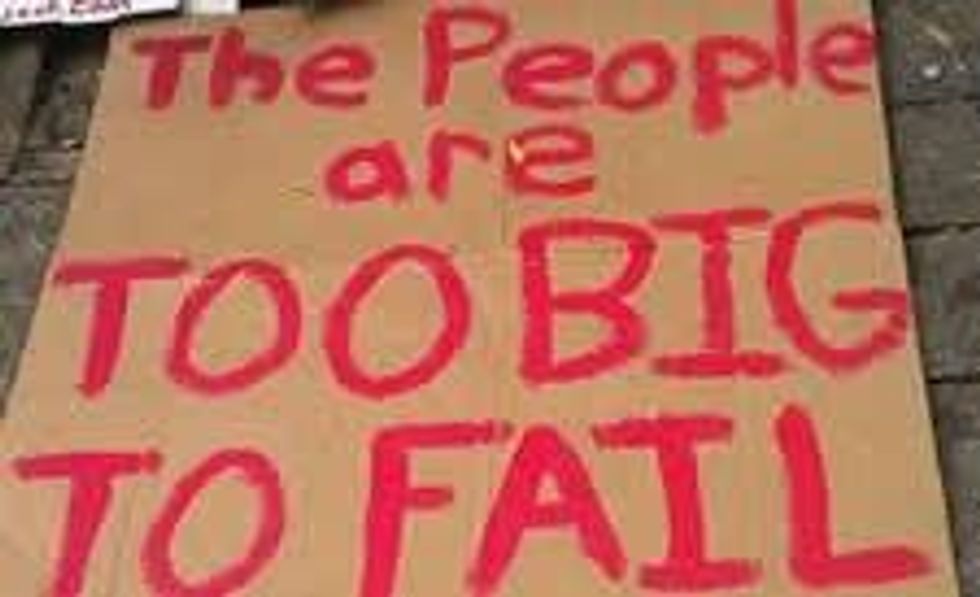There is a well-funded effort in this country to try to distract the public's attention from the massive upward redistribution of income over the last three decades by trying to claim that the issue is one of generational conflict rather than class conflict. Billionaire investment banker Peter Peterson is the most well-known funder of this effort, having kicked in a billion dollars of his own money for the cause.
However, he is far from the only generational warrior. The Washington Post has often gone into near hysterics screaming about retirees living on their $1,100 a month Social Security benefits and getting most of their health care paid for through Medicare. And, there is no shortage of politicians in Washington who like think themselves brave because they will cut these benefits for seniors will protecting the income and wealth of the richest people in the country.
David Leonhardt flirted with this disreputable group in a column that focused on the gap between the old and the young. While much of the piece is devoted to political attitudes, it delves into utter nonsense in trying to contrast a "wealthy" group of seniors with a poor group of young people.
Leonhardt picks up on a study done by the Pew Research Center to tell readers:
"The wealth gap between households headed by someone over 65 and those headed by someone under 35 is wider than at any point since the Federal Reserve Board began keeping consistent data in 1989."
That makes you think those oldsters are doing real well, right?
Well, if we look at the Pew study we see that the median household over age 65 has $170,500. Just so everyone understands how rich these people are, that number counts all of their assets. This is every penny they have in a retirement account, bank account, the value of their car and the equity in their home. The median price of a home in the United States is now about $180,000. This means that if the typical retiree took everything they own to pay down their mortgage, they would still owe $10,000. The only thing that they would have left to survive is that generous $1,100 a month Social Security check.
It is also important to note (which this Pew study did not) that the percentage of seniors with defined benefit pension plans (which are not counted in this number) has plummeted. Without factoring in the drop in DB pensions, it is not possible to make a serious comparison of the wealth of seniors over this period.
As an aside, how many people in this debate in Washington make less than $170,000 in a year? Yet, somehow seniors who will have this sum to survive on for the rest of their lives are rich? And by the way, half have less than this.
The wealth of the young is also a silly measure. Young people never have much wealth -- in the good old days they had $11,500 according to Pew. (That would be less than two week's pay for deficit hawk and Morgan Stanley director Erskine Bowles.) A recent graduate of Harvard Business school may still be paying off her debt at age 35. However no one in their right mind would worry about the financial well-being of a Harvard MBA.
Young people are not doing well right now, but the relevant measure here is their employment and wages. Because our economy is run by people too incompetent to have noticed an $8 trillion housing bubble, many young people are suffering. But this is a story of Wall Street greed, corruption, and incompetence. It has nothing to do with the Social Security and Medicare received by the elderly.
Leonhardt should be ashamed for falling for this tripe.

